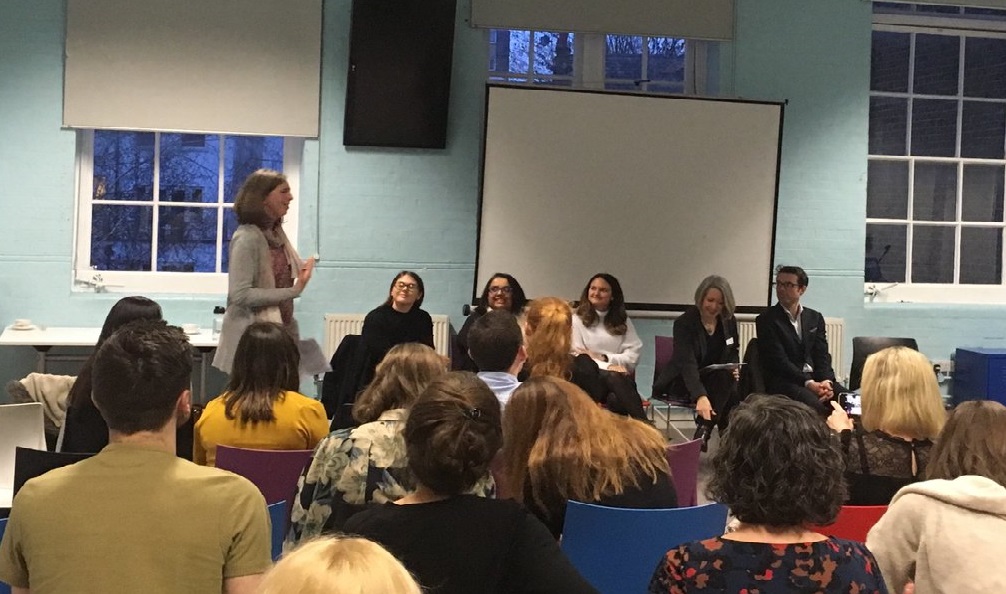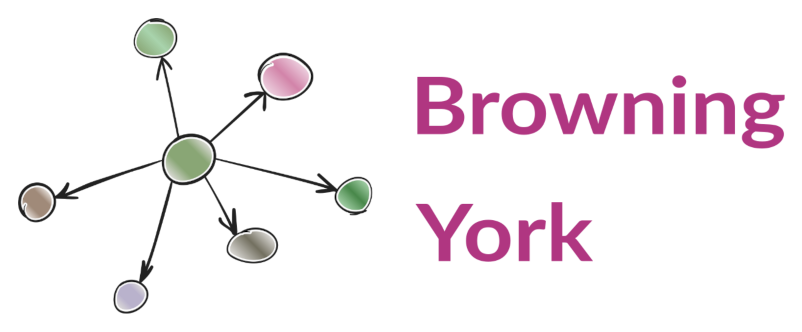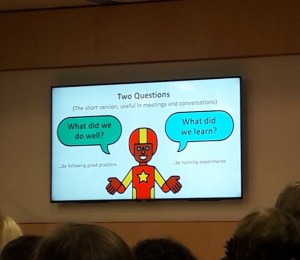
Last night I went along to a Charity Meetup – a networking event aimed at people working for and with charities. As a communications specialist working with not-for-profit organisations, I always enjoy meeting like-minded souls, sharing ideas and best practice from our wonderful – and sometimes challenging – sector.
The Charity Meetup events always take a different theme and this time we talked about celebrating success, failure and learning. From a great mix of speakers, panel discussion and networking with peers, here are my top 20 things that I learnt from attending:
1. The fear of shame – the worry that we’re not good enough and have done something stupid – can hold us back from celebrating how awesome we are, even when things don’t go completely to plan.
2. Admitting out loud – in a safe, supportive environment – that we failed at something and articulating what we learnt from that experience, can be incredibly cathartic. If you’ve never tried a Failure Swap Shop, give it a go!
3. The more interactive you can make digital experiences to share success – such as the JustGiving badges for celebrating fundraising success- the more likely individuals are to shout about what they’ve achieved.
4. A team retrospective is a great way to look at what went well and less well and learn about what to do differently next time.
5. When we do something that we know will work and it works, we don’t learn anything new from that experience.
6. Neither do we learn when we are simply repeating the same mistakes over and over again.
7. However, we do learn when something that was best practice in the past doesn’t work anymore – the world moves on and attitudes change, meaning that we need to keep adapting our activities.
8. Remember that someone making mistakes can turn out to be a beneficial accident leading to a brilliant discovery – Fleming wouldn’t have discovered penicillin if he’d had a good tidy up before he went on his hols!
9. Running experiments – trying out something new to see what happens and what you can learn from the good and bad things that occur – is a more positive experience than changing everything.
10. A celebration grid is a really useful tool for capturing and assessing learning from experiments that you undertake.
11. When you’re celebrating success within your organisation, personalise as much as you can – it can be a very personal choice. Some people want a big celebration with certificates and clapping, others will be happy with a heart-felt thank you while you’re waiting for the kettle to boil.
12. Share success with everyone, not just the team directly involved – it helps to create community if you all celebrate.
13. The tradition of wrap parties in the TV industry gives a chance for everyone involved to celebrate the work that has gone into a project before it is released to the wider world and judged by others.
14. If you write thank you messages on Christmas labels and hang them on a Christmas tree in the office, everyone gets to read why their colleagues are so awesome while they are looking for the label that celebrates their success during the year.
15. Empowering all your people to run a lunch and learn session when they feel they have learnt something useful to share is a great way to spread knowledge and ideas through your organisation.
16. If you want to convince your chief executive that sharing success and/or failure is a good idea, use examples of where other organisations have done it well and benefitted from the exercise. Networking is a handy way to find out about those stories you can share.
17. If you rebrand risk as testing – “we’re going to test the concerns you have about this app we’re developing” – everyone feels more comfortable.
18. If you’re going to celebrate failures, make sure that the whole team is bought into the idea and steers clear of blame – you want to avoid an outbreak of “it wasn’t me!”
19. Talk in terms of ‘we’, not ‘you and I’ – this creates a collective, community feel.
20. Remember that in any project something is going to go wrong – it’s how you adapt to changed circumstances that matters. Plan for what might go wrong and have a back-up plan for your back-up plan!
I will be using plenty of these ideas with my charity clients while we are looking at what is working, and what isn’t, with their communication activities.
Thanks to Dawn Newton for putting on such an interesting and informative event.
See you at the next one!
Sarah

